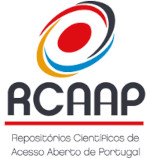Concepções acerca de educação ambiental de professores de uma escola com práticas inovadoras
DOI:
https://doi.org/10.14295/remea.v41i1.14573Palavras-chave:
Educação ambiental, relação ser humano-natureza, práticas inovadorasResumo
O presente artigo apresenta uma pesquisa que objetivou-se compreender as relações entre ser humano-natureza e a educação ambiental em uma escola de educação básica. A pesquisa ocorreu através de entrevistas a partir de um questionário e foi analisado através da Análise de Conteúdo. As unidades de análise que destacadamente emergiram foram: Educação ambiental não dialoga com as demandas sociais; Consumo consciente e a gestão das águas e; Relação ser humano - natureza. Como resultados foram verificados: uma forte ligação dos conceitos e concepções conservadoras de educação ambiental; abordagens de uma educação ambiental fragmentada e ligada a resolução de problemas locais como mera formalidade e; compreensões do consumo consciente, aspectos da água como mercadoria, bem como aspectos críticos em relação ao consumo. Nas relações ser humano-natureza verificou-se contradições com um entendimento do ser humano como separado da natureza e também alguns aspectos críticos nestas relações.
Downloads
Referências
BARDIN, Laurence. 2011. Análise de Conteúdo. Coimbra: Edições 70, 2011.
CARVALHO, Isabel Cristina de Moura. Educação Ambiental: a formação do sujeito ecológico. São Paulo: Editora Cortez, 2004.
COSTA, Cézar Augusto; LOUREIRO, Carlos Frederico. A interdisciplinaridade em Paulo Freire: aproximações político pedagógicas para a educação ambiental crítica. Revista Katálysis, Florianópolis, v. 20, n.1, pág. 111-121, 2017.Disponível em: https://doi.org/10.1590/1414-49802017.00100013 DOI: https://doi.org/10.1590/1414-49802017.00100013
GIL, Antônio Carlos. Métodos e técnicas de Pesquisa Social. São Paulo: Atlas,2008.
FREIRE, Paulo. Politica e Educação. São Paulo: Paz e Terra, 2018.
FREIRE, Paulo. Pedagogia do oprimido. São Paulo: Paz e Terra, 2013.
FREIRE, Paulo. Pedagogia da Autonomia: Saberes necessários à pratica educativa. São Paulo: Paz e Terra, 2011.
FRANCO, Maria Laura Puglisi Barbosa. Análise de conteúdo. Porto Alegre: Liber Livro Editora, 2007.
GUIMARÃES, Mauro. Por uma educação ambiental crítica na sociedade atual. Revista Margens Interdisciplinar, Belém, v. 7, n.9, pág. 11-22, 2013. Disponível em: http://dx.doi.org/10.18542/rmi.v7i9.2767 DOI: https://doi.org/10.18542/rmi.v7i9.2767
LAYRARGUES, Philippe Pomier; LIMA, Gustavo Ferreira da Costa. As macrotendências político-pedagógicas da educação ambiental brasileira, Ambiente e Sociedade, Rio Grande, v. 17, n.1, pág. 23-40, 2014. DOI: https://doi.org/10.1590/1809-44220003500
LAYARGUES, Philippe Pomier. O cinismo da reciclagem: o significado ideológico da reciclagem da lata de alumínio e suas implicações para a educação ambiental. In: LOUREIRO, Carlos Frederico; LAYARGUES, Philippe Pomier. CASTRO, Ronaldo de Souza. (Orgs.) Educação ambiental: repensando o espaço da cidadania. São Paulo: Cortez, pág. 179-220, 2002.
LAYRARGUES, Philippe Pomier. Prefácio. In: LAYRARGUES, Philippe Pomier (Coord.) Identidades da educação ambiental brasileira, pág. 7-9. Brasília: Ministério do Meio Ambiente, 2004.
LEFF, Enrique. Complexidade, racionalidade ambiental e diálogo de saberes. Educação e Realidade, Porto Alegre: v. 34, n. 3, pág. 17- 24, 2009
LIMA, Gustavo Ferreira da Costa. Educação, emancipação e sustentabilidade: em defesa de uma pedagogia libertadora para a educação ambiental. In: LAYRARGUES, Philippe Pomier Coord.) Identidades da educação ambiental brasileira, pág. 85-111. Brasília: Ministério do Meio Ambiente, 2004.
LOUREIRO, Carlos Frederico. Trajetória e Fundamentos da Educação Ambiental. São Paulo: Editora Cortez, 2012.
LOUREIRO, Carlos Frederico; TOZONI-REIS, Marília Freitas de Campos. Teoria social crítica e pedagogia histórico-crítica: contribuições à educação ambiental. Revista Eletrônica do Mestrado de Educação Ambiental, Rio Grande, Ed. Especial, pág. 68–82, 2016. Disponível em: https://doi.org/10.14295/remea.v0i0.5960
NEUENDORF, Kimberly A. The Content Analysis Guidebook. London: SAGE Publications, 2017. DOI: https://doi.org/10.4135/9781071802878
NOGUEIRA, Christiano. Contradictions in the concept of sustainable development: An analysis in social, economic, and political contexts. Environmental Development, Amsterdã, v. 30, pág. 129–135, 2019. Disponível em: https://doi: 10.1016/j.envdev.2019.04.004 DOI: https://doi.org/10.1016/j.envdev.2019.04.004
NOGUEIRA, Christiano. Education for sustainable development and conceptions of environmental education in Brazil: possible approaches. Journal of Education for Sustainable Development, New Delhi, v. 12, n. 1, pág. 47–58, 2018. Disponível em: https://doi.org/10.1177%2F0973408218773269 DOI: https://doi.org/10.1177/0973408218773269
OLIVEIRA, Erica Tobias; NOGUEIRA, Christiano.Um estudo das concepções de Educação Ambiental de alunos regulares e da Educação de Jovens e Adultos do Ensino Fundamental. Revista Eletrônica do Mestrado em Educação Ambiental, Rio Grande, v. 36, n. 1, pág. 357-373, 2018. Disponível em: https://doi.org/10.14295/remea.v36i1.8811
SANTOS, Milton. Pensando o espaço do homem. São Paulo: Edusp, 2009.
SAUVÉ, Lucie. Currents in Environmental Education: Mapping a Complex and Evolving Pedagogical Field. Canadian Journal of Environmental Education, North Bay, v. 10, n. 1, pág. 11-37, 2005.
TREIN, Eunice Schiling. An argument for vindicating a Marxist ontology in environmental education research. Environmental Education Research, Monash, v. 24, n.10, pág. 1464–1475, 2018. Disponível em: https://doi.org/10.1080/13504622.2018.1545153 DOI: https://doi.org/10.1080/13504622.2018.1545153
TREIN, Eunice Schiling. Educação ambiental crítica: crítica de que? Revista Contemporânea de Educação, Rio de Janeiro, v., n.14, p. 295-308, 2012. Disponível em: https://doi.org/10.20500/rce.v7i14.1673
Downloads
Publicado
Como Citar
Edição
Seção
Licença

Este trabalho está licenciado sob uma licença Creative Commons Attribution-NonCommercial-ShareAlike 4.0 International License.










